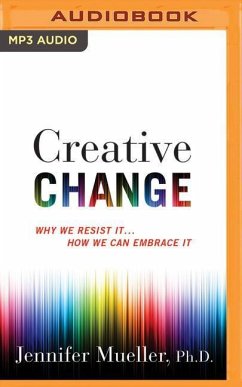One of the nation's leading psychologists asks why today's corporate leaders desire but reject creative solutions--and finds some surprising conclusions. All corporate CEOs, top executives, and other business leaders say they want creativity and need real innovation in order to thrive in a competitive world. But according to startling research from former Wharton management professor Jennifer Mueller, the truth is that many business leaders chronically reject creative solutions and often embrace the familiar, even as they profess commitment to innovation. Mueller's research also reveals that it's not just CEOs, but educators, scientists, and many, many others who often struggle to accept new and creative ideas even when desired. Mueller parses the tough questions that these findings raise. Could people love but also hate creative ideas? Could the mindset we use to evaluate ideas turn this love or hate on or off--in an instant? Do experts struggle even more than novices with this bias? And even more startling, could the "best practices" that organizations employ to manage innovation activate this bias, and inadvertently, kill innovation? Mueller diagnoses this hidden innovation barrier, and provides solutions, including: * A four-step process (and a fifth lifeline) to self-disrupt your current mindset and recognize creative opportunity; * an idea-pitching framework aimed at helping you overcome other peoples' sticky preference for the status quo; * key organizational levers to disrupt the cultural beliefs holding your company back; * tips to more accurately recognize creative leaders who can lead organizations in productive new directions, and * strategies to generate ideas without harming your ability to make them count with the decision-makers. Based on the latest psychological studies in the field, along with numerous illustrative examples, Creative Change is the kind of provocative creative leadership book that will be discussed for years to come.
Bitte wählen Sie Ihr Anliegen aus.
Rechnungen
Retourenschein anfordern
Bestellstatus
Storno


